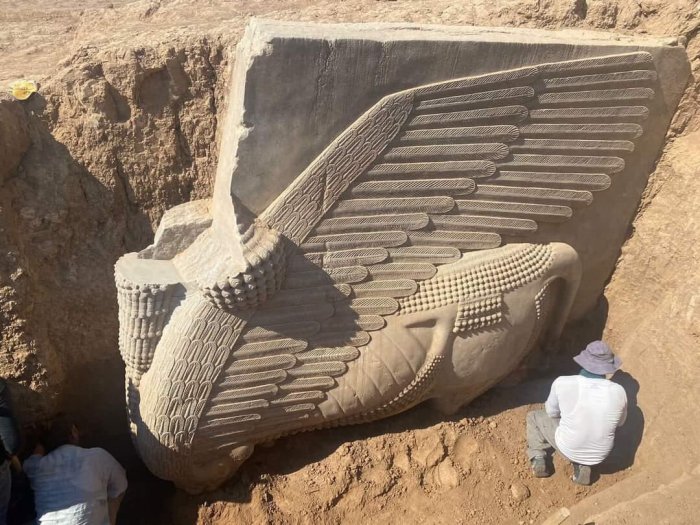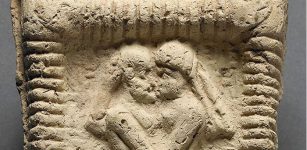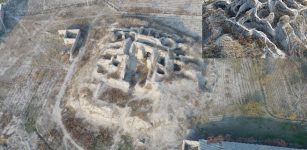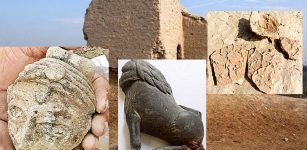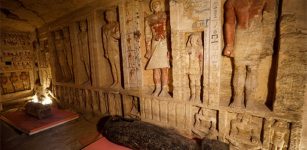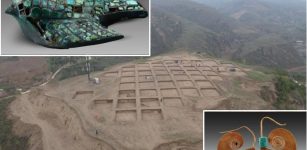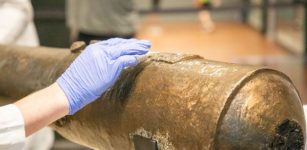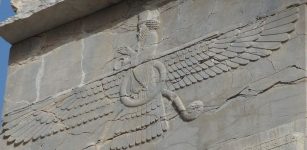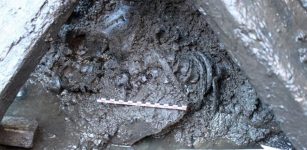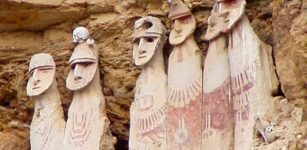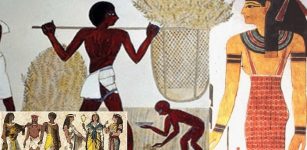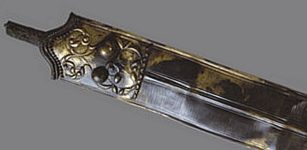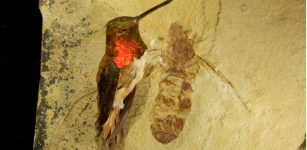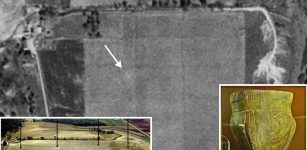Impressive Huge Ancient Lamassu Statue Unearthed In Nineveh, Iraq
Conny Waters - AncientPages.com - A massive ancient statue of the Mesopotamian deity Lamassu has been unearthed at the Dur-Sharrukin archaeological site, Khorsabad, in Nineveh, Iraq.
The Iraqi State Board of Antiquities and Heritage (SBAH) informs a joined Iraqi-French archaeological mission made the discovery. Weighing 18 tonnes and carved from a single piece of limestone, the 2,700-year-old statue was mainly found intact, despite its considerable size, apart from the fact its head is missing.
The ancient statue's head was confiscated from smugglers in the 90s.
Credit: Iraqi State Board of Antiquities and Heritage (SBAH)
"The head of the Lamassu was cut away and was stolen and recovered during the 90s by the customs in Baghdad. I think now the head is in the Baghdad museum. The rest of the body was found here and is in excellent shape," said Pascal Butterlin, a professor of Archeology at Paris Sorbonne University.
Lamassu is a mythical creature in Mesopotamian mythology. Depicted as a winged creature with the bearded head of a human and the body of a bull or a lion, the being was regarded as a protective deity. Lamassu guardian sculptures were often placed in pairs before gates and entrances of ancient cities across the Neo-Assyrian Empire, now modern-day Iraq. These monuments symbolized intelligence, strength, and freedom. Female versions also existed and were called 'apsasu.
The archaeological story of the Lamassu in Khorsabad started much earlier, though. In the 19th century, French archaeologist Victor Place mentioned the statue, but the the relief dropped from public records until the 1990s when Iraqi authorities earmarked it for "urgent intervention".
It was initially erected at the entrance to the ancient city of Khorsabad, some 15 kilometers north of the modern city of Mosul.
As reported by Euronews, the Lamassu "was commissioned during the reign of King Sargon II who ruled from 722 to 705 BC, and erected at the city's gates to provide protection for the city.
"We can now study the whole context of this beautiful gate which might still be in very good condition" continued Butterlin.
"I never unearthed anything this big in my life before," Butterlin said of the piece measuring 3.8 by 3.9 metres "Normally, it's only in Egypt or Cambodia that you find pieces this big.
"The attention to detail is unbelievable," said the professor of Middle East archaeology at the University of Paris I Pantheon-Sorbonne.
Credit: Iraqi State Board of Antiquities and Heritage (SBAH)
It was during this period that looters pillaged the head and chopped it into pieces to smuggle it abroad.
See also: More Archaeology News
The rest of the relief was spared the destruction wreaked by the Islamic State jihadist group, which overran the area in 2014. Residents of the modern village of Khorsabad reportedly hid it before fleeing to government-held territory."
Scientists will now examine the huge Khorsabad Lamassu to determine what will happen with the ancient statue next.
Written by Conny Waters - AncientPages.com Staff Writer

